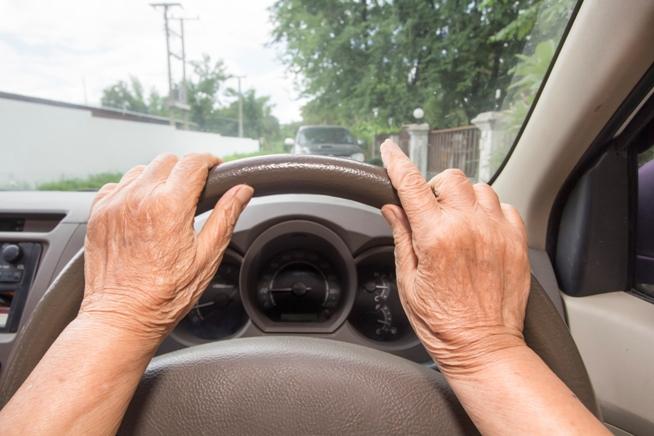
What do you do when a loved one should not drive?
My brother and sisters noticed when she would take herself to the hairdresser — the one she’d been visiting for years — she started to ask for directions to find her way home.
My mother is 85 years old and still drives.
And she won’t allow us to take her keys from her.
I realised mum probably shouldn’t be driving several years ago. It began quietly. My brother and sisters noticed when she would take herself to the hairdresser — the one she’d been visiting for years — she started to ask for directions to find her way home.
She stopped taking herself when one day she drove off . . . only to return a short while later because she’d forgotten her way.
For the past few months, she has only been driving once a week. To housie. But, after her friends expressed their concerns about her parking, it seems she might not be able to handle that either, even though it’s less than two minutes up the road.
As a family, we’ve discussed whether or not she should keep doing it. It was a short drive, we reasoned. She didn’t have to cross a road. We thought she was safe to negotiate her way there and home.
Alas, it seems we were wrong.
Mum has started to misjudge distance and has had several little accidents, hitting her letterbox as she comes or goes, reversing so fast she took off her bumper and scraping her car (and others) left and right. The insurance company will no longer insure her.
Yet, she refuses to stop driving. And although it’s frustrating, I don’t blame her.
We emigrated from the UK, where mum had never driven, nearly 50 years ago. I remember being a child in the back of the car with my siblings as dad taught mum how to drive. She would have been about 34 years old.
Since then, she’s always been an extremely confident driver. Mum should have a pilot licence, one sister said, she drove so fast.
But over the last half a century, the roads have become busier and can be frightening for the elderly, even a small town of 60,000 like ours. And our worries about mum are heightened by the fact that drivers over 70 are twice as likely to die after a car accident.
”It’s about trying to get smarter in trying to recognise and identify those drivers who are at risk, and not jeopardise or label the majority of older drivers on the basis of those few,” Dr Judith Charlton of the Monash University Accident Research Centre told the Sydney Morning Herald.
I noticed mum was getting worried on the road. She would make snap decisions, like turn at the last minute or forget to indicate altogether.
Our concern about her driving now is, firstly, the accident she might cause and the innocent parties she might unwittingly harm, and, secondly, that she may get disorientated and lost, unable to find her way home.
That’s the other thing. My mum has dementia. And it’s slowly started to affect her driving.
Mum still has her own car, a 2005 Suzuki Ignis, and if it’s borrowed she frets dreadfully until it’s returned, in case she might need to go somewhere. The car symbolises independence for her, so as a family we won’t sell it.
Luckily for mum she has people who will take her places, but for others her age being stripped of their licence has lead to higher rates of depression due to loneliness and lack of social contact. Not driving means a significantly lower quality of life.
Somehow, mum still has a drivers licence, which now needs to be renewed every two years. It’s due to run out in the next year and we know it won’t be renewed. Do we tell her she can’t renew it? I suspect if we did she’d become aggressive and drive anyway, just to prove she still can.
Or do we continue on as is, sneakily denying her the opportunity to drive without her realising that’s what we’re doing? Not having a licence can be isolating, but friends and family take her out and about, and actually, she’s happier being driven. But she wouldn’t like anyone to know she depends on others.
We haven’t physically stopped her driving, but it’s been a naturally occurring process.
My mum isn’t the only one still yearning to drive past 80. According to Roads and Maritime figures, the number of NSW drivers over 80 who still hold their licence is 133,156. This figure is up 67 per cent since 2005 and the number of drivers over 90 has tripled, rising from 2492 to 8406 in the past decade.
“Between now and the 2030s the number of frail drivers will grow rapidly,” demographer Bernard Salt told the Daily Telegraph.
“We are living longer, we have better quality health care and we’re less likely to drink or smoke. It’s a numbers game.”
But is this increase in elderly drivers a good thing? Perhaps not.
In the last decade, there has been a 50 per cent increase in vehicle-related acccidents for drivers 75+ and a 111 per cent increase for drivers 85+. This doesn’t say much for the safety of the drivers or innocent bystanders.
It’s not that officials aren’t putting precautions in place. From the age of 75, all NSW drivers need to have an annual medical check and everyone over 85 has to take a practical test every two years.
“The more you can keep people connected and mobile then the less they require assisted living,” Salt said. “It’s an important skill to have … but it’s equally important to mitigate the risk that it might pose to other motorists.”
I asked around the Debrief Daily team and one of the staffers told me a similar story about their dad . . .
My dad is 82, and has been driving since he was 16. He did it for a living – huge semi trailers, hauling sheep, cattle and wheat across NSW, rarely taking a day off. He knows what he’s doing. He can fix pretty much anything that goes wrong with a vehicle (or could, until they started hooking them up to computers), and has never been the at-fault party in an accident.
But driving with him now, and especially in the city, can be scary.
He ‘tootles’ (his word) along, often much more slowly than the rest of the traffic, oblivious to the fury of other drivers. His reflexes aren’t what they used to be; he changes lanes without noticing there’s another car bearing down on him, and he hates the rear-view mirrors that distort the distance so that other cars seem further away than they really are. I spend a lot of time applying an imaginary brake from the passenger seat.
He doesn’t seem to notice. His car is his lifeline. He’s not happy unless he’s driving somewhere — to see the doctor 35km away, to machinery shows in nearby towns, to check out a farmers’market. It keeps him active and interested and useful, since he’s become a kind of de facto taxi service for other elderly people in our town and usually ‘has a few extra bums’ to keep him company.
He handed in his heavy vehicle licence — reluctantly — a few years ago, and he’s just had his licence renewed after passing his medical review. And I don’t worry at all about him driving in the country – he knows the roads so well I think he could doze off and muscle memory would take over to get him where he needs to go.
I dread the day he won’t be able to get behind the wheel: I think it will be the end of him. But at the same time, I worry about his driving now.
My mum’s lucky that she has her children around who can drive her places when need be, but for those less fortunate, stripping them of their licence is like taking away the last shred of independence they have.
It’s been six weeks since mum last drove. We’ve made a point not to mention anything to her in the hopes that this will be the new norm. Now our dilemma is if we should take her car keys away from her. But to do this, would be to extinguish that little flicker that’s still fighting to drive.
And I just don’t know if I could do it.
This story originally appeared on Debrief Daily.
Take a look at other related articles on Debrief Daily or follow us on Twitter or Facebook.
When You're Torn Between Your Aging Parents And Your Young Children . . .
'How A Carefully Worded Email Made Me Realise I Was A Drunk.'







